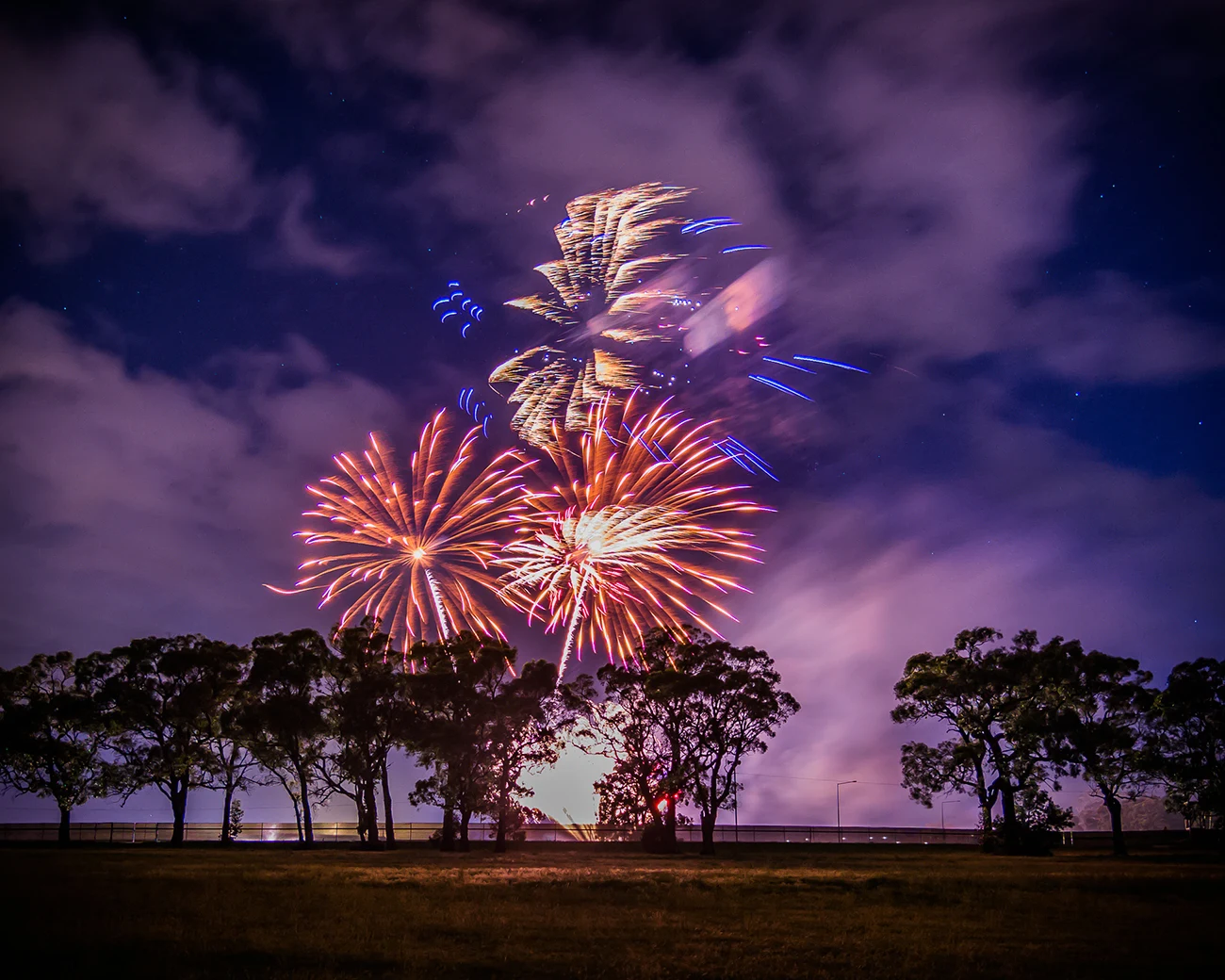For most horse owners, the occurrence of fireworks is rare enough not to be a year-round concern, but that also means that when fireworks do get set off around summer holidays or New Year celebrations, horses have had little opportunity to acclimate to the surprising pops and flashes. The firework season that kicks up each summer—often unpredictably with unsanctioned, backyard pyrotechnics—can lead to a rise in anxiety for both horses and the people who care for them.
Dr. Sue McDonnell, MS, PhD., is the founding head of the Equine Behavior Program at University of Pennsylvania School of Veterinary Medicine, and practices at the New Bolton Center. Each June, she starts to get phone calls from worried horse owners hoping to prepare their horses for the possibility of nearby fireworks.
“Most horses are not thunder-phobic, right? They acclimate to it,” McDonnell said. “They stand right out in the middle of a storm. We’re nervous, but they don’t seem to be. So it’s the novelty of the [firework] noise—and I think fireworks are so different in nature.”

Apart from the stress, horse owners’ concern is that a big reaction to fireworks can lead to panic and injury—especially running through fencing. If your horse responds negatively to firework noise, you aren’t alone. McDonnell referenced a 2016 survey out of New Zealand, where owners rated 39% percent of their horses as anxious around fireworks, and 26% of owners reported horse injuries as a result of fireworks.
McDonnell said that your horse’s previous reaction to fireworks is a fairly good indicator of how they’ll respond in the future and that it’s wise to consider where on the property they’ll be exposed to the least noise, but within sight of other horses. Because they will look to each other for comfort, keeping them with confident friends can help.
Dr. Joe Davis, DVM, says that horses experienced and typically undisturbed by fireworks can have a positive effect on their barn mates.
ADVERTISEMENT
“For the most part, if they’re in the barn and there are other horses around, and those horses have survived prior [fireworks] experiences and that horse can see those horses, it’s going to be okay,” Davis said.
But also be aware that one animal’s overreaction can trigger the others.
“Just because one horse really goes and flips out full throttle and by social facilitation, everybody takes off,” McDonnell said. “It’s a school-of-fish kind of thing. When a horse has that level of alarm, it’s instantaneously transferred to the herd mates that there must be something wrong.”
McDonnell encourages horse owners to go with what they know works for their horses when deciding whether to turn them out or bring them in during firework shows. Stalling horses on days when fireworks are likely, like the Fourth of July, could help to reduce possible injuries she’s seen horses sustain by running through fencing. Be sure to clear their stall of any possible obstacles, and consider putting on a radio or using horse earplugs to muffle the noise.
“In a stall, they can get really ramped up, but they’re probably less likely—not completely safe—but less likely to to injure themselves by running through an obstacle,” McDonnell said. “Everybody knows their horse and how it responds to unusual sounds.”
McDonnell also recommends checking in with neighbors and reminding them of the presence of your animals. She’s considered leaving notes in her own neighbors’ mailboxes and asking them to share when they plan to set off fireworks.
ADVERTISEMENT
“Where things go wrong is where Joe Schmoe goes down to Delaware and buys a gazillion commercial grade fireworks and sets them off randomly next to your horse pasture, and you don’t know about it,” she said.
For horses that have a history of panicking during fireworks, Davis recommends consulting your veterinarian about possible sedation. For less serious reactions, caretakers might consider an over-the-counter calming gel, which can reduce their reaction to the fireworks. McDonnel also recommended a supplement that has a high price tag, but can calm horses without dulling them.
“Also, there’s some mild calming agents that, for some horses, seem to take the edge off,” McDonnell said. “There’s a product called Zylkene—it’s not a drug—it’s a milk protein that has calming effects. It’s the same milk protein that makes babies very sleepy after they nurse.”
In a recent study, researchers played back firework sounds to horses and monitored their biological reaction, and they found that all horses, even those not outwardly agitated, had an adverse response to the noises.
“Since the evidence is that all horses respond with increased cortisol and other indicators of stress, increased heart rate, that even if your horse isn’t running through the walls or the fences, it might be worth giving them Zylkene if you knew fireworks were going to happen,” she said.
Another key to keeping your horses safe in a stressful situation: you. By simply being present on-site, you can offer comfort to your animals and respond to their needs in real time.
“I would suggest they be in the barn—hopefully [horse owners] have a barn so that’s an option—and that they just pay attention so that they know what happens,” Davis said. “If horses are in the barn and freaking out, owners can at least be prepared to manage the situation.”














